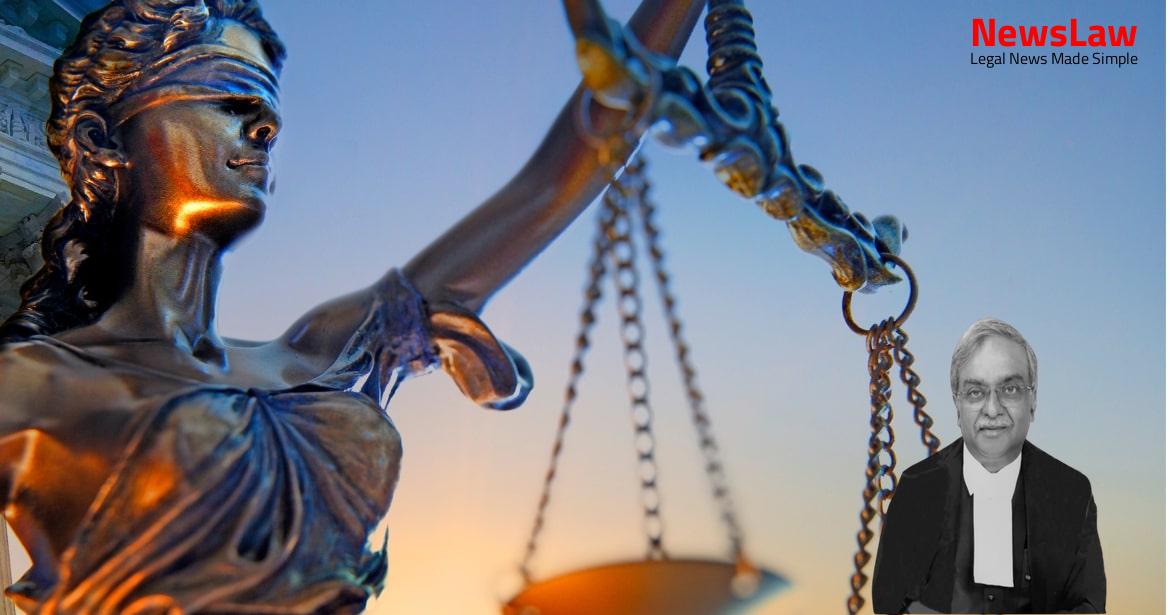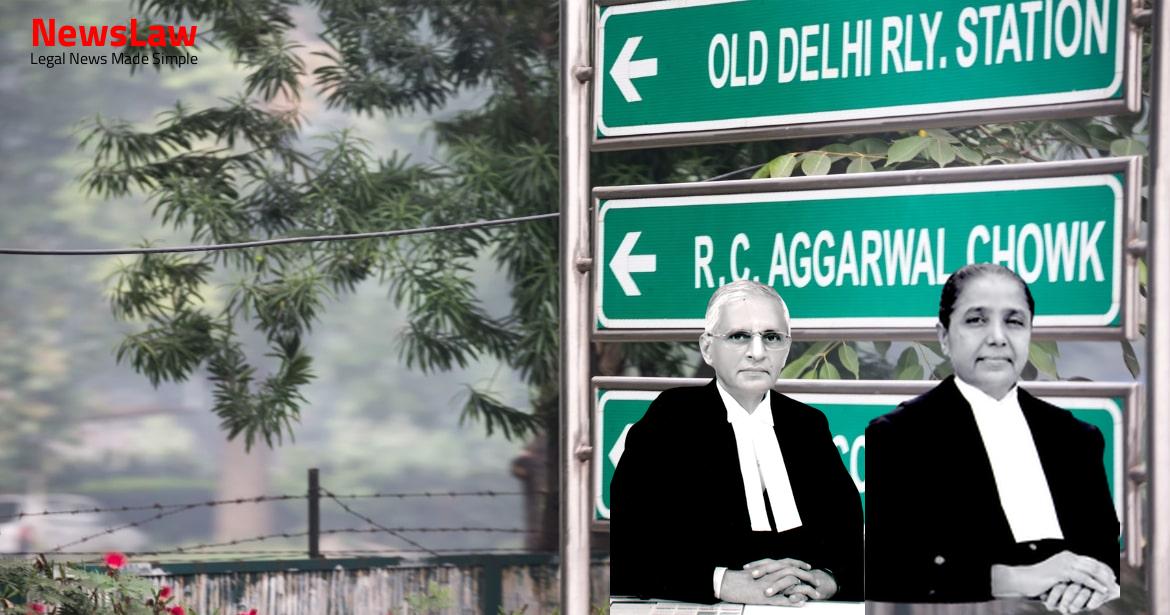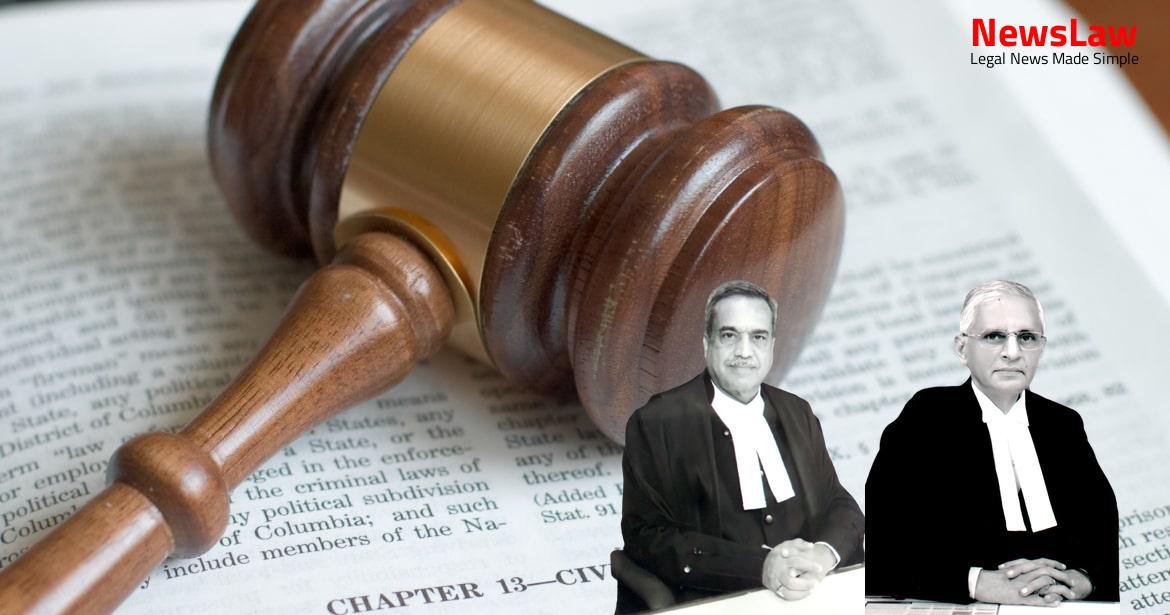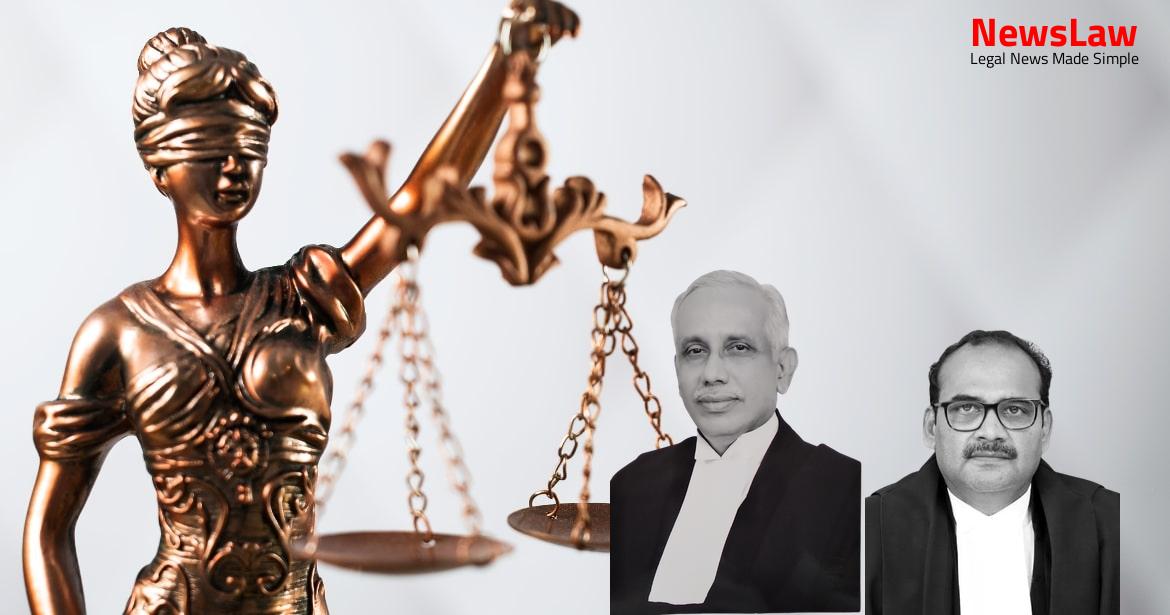In a landmark decision by the Supreme Court of India, a long-standing land dispute involving the Ranchi property has been settled in favor of the plaintiffs. The specific performance decree has been upheld, marking a crucial victory for the legal rights of the individuals involved. Delve into the detailed analysis of the case and the implications of the judgment in this significant legal battle.
Facts
- Plaintiffs claimed specific performance of the agreement to sell dated 30.06.1998
- Defendant contended that the agreement was forged and lacked consideration
- The Trial Court decreed the suit for specific performance
- The First Appellate Court upheld the Trial Court’s decision
- The High Court also confirmed the decree for specific performance
- The case involved a dispute regarding plot No. 2339 situated at Purulia Road, Kumhar Toli, Gali No. 2, Namkum, District Ranchi, which originally belonged to Kisun Ram.
- The plot was sub-divided among co-sharers, with plot No. 2339B of Khata No. 252 coming into the share of Bihari Lal, later succeeded by the defendants.
- An agreement was entered into between Bihari Lal and the plaintiff on 22.07.1983 for the sale of the land along with the superstructure for a total consideration of Rs. 70,000.
- The agreement stipulated the execution and registration of the sale deed within one month, up to 16.01.1990.
- A subsequent agreement dated 17.12.1989 required payment of Rs. 69,000 within nine months for the execution of the sale deed, with an initial payment of Rs. 10,000.
- The sale deed was not executed within the stipulated time, leading to the filing of a suit for specific performance of the contract in September 1993 by the plaintiffs.
- The defendants alleged that the agreement to sell was forged and did not bear their father’s (Bihari Lal) signatures.
- The Appeal was allowed, and the defendants were directed to execute and register the sale deed after receiving the balance consideration within 30 days.
- The suit was decreed, and the plaintiffs were put in possession of the property, resolving the dispute in their favor.
Also Read: Matter of M/S. SS. Infrastructure: Landmark Judgment by the Supreme Court of India
Issue
- Whether the so-called agreements between the plaintiffs and late Bihari Lal are binding on Defendant Nos. 1, 2, 4, and 5 is under consideration.
- The authenticity of the alleged agreements is in question, specifically whether they are forged, fabricated, and do not bear the signature of Bihari Lal.
- The issue of ownership and possession of the suit property by Bihari Lal at the time of agreement is being examined to determine the nature of the property, whether joint or solely owned.
- Additionally, the status of Ashok Kumar, defendant No. 3, as either the adopted son of Bihari Lal or the son of Shivlal, and his right to contest the suit is also being deliberated.
- The central question remains whether the plaintiffs are entitled to the reliefs sought in the plaint and any other additional reliefs.
Also Read: Health and Safety Rights for Workers: State of Gujarat v. Union of India
Analysis
- The limitation for instituting a suit for specific performance is three years from the date fixed for performance or when the plaintiff has notice of refusal.
- In the present case, the agreement stated that the sale deed would be executed within one month from the agreement date of 17.12.1989.
- As the specific date for performance was mentioned, the limitation period was three years from that date, which expired on 16.01.1993.
- The Trial Court found the suit barred by limitation as it was filed in September 1993.
- Issue no.3 was held to be barred by limitation, leading to the dismissal of the suit based on limitation alone.
- The validity of the agreement does not impact the date of performance or the limitation period.
- The High Court also dismissed the second appeal, confirming the limitation issue.
- Other raised issues were not delved into as the limitation issue was deemed decisive.
- Both parties presented evidence, and the performance was to occur within one month as per the agreement.
- The clause about the agreement being valid for five years does not alter the fixed date for performance.
- The court has not delved into the issues surrounding the validity of the agreement to sell.
- The focus of the analysis is on a specific aspect of the case.
Also Read: Interpretation of Drawer Liability: Company vs. Authorized Signatory
Decision
- The appeal has been allowed.
- The plaintiffs-respondents paid Rs. 80,000 to the defendant-appellant, and no refund was claimed.
- To ensure fairness, the Rs. 80,000 is to be returned to the plaintiffs along with 12% simple interest within three months.
- The impugned order is overturned, and the suit is rejected.
Case Title: USHA DEVI Vs. RAM KUMAR SINGH (2024 INSC 599)
Case Number: C.A. No.-008446-008446 – 2024



